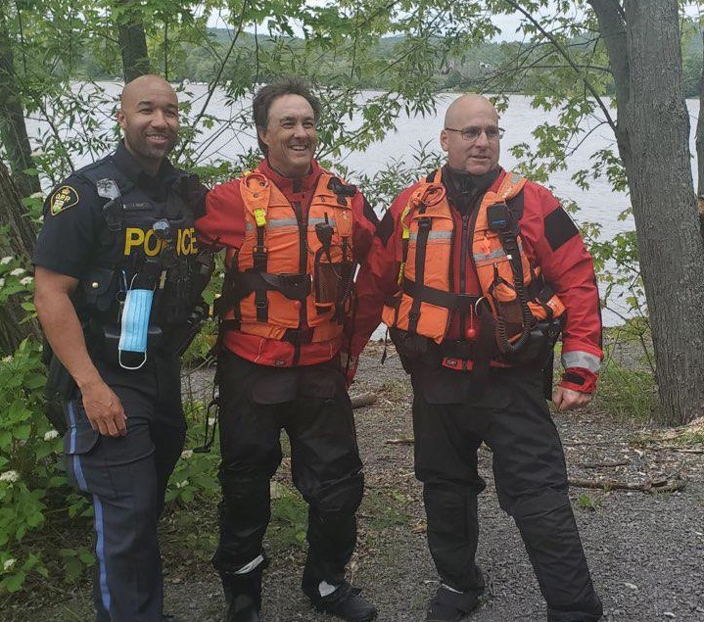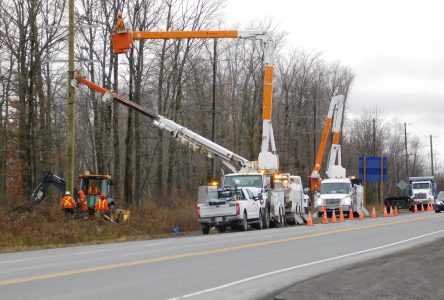The first day of June, early in the afternoon, police received a 911 call about a 30-foot boat that seemed in need of assistance. The boat was sighted on the Ottawa River near the Village of Lefaivre.
Sgt. Paul Dubé and Constable Jason Bailey from the Hawkesbury OPP detachment and Fireman Marc Gour with the Alfred-Plantagenet Township Fire Department took the fire department’s marine rescue boat out onto the river. They found the alleged «boat in distress» but received no answers to their calls to the vessel’s occupants. The boat itself continued without stopping to a marina on the Québec side of the river and docked.
The marine rescue boat also docked at the marina. The two officers spoke to the occupants of the other boat. They learned that none of the people in the boat had a boating licence and the boat itself lacked safety equipment.
The occupants of the boat now face charges for unsafe boating.
Boating safety advice
The OPP and local fire/marine rescue services urge both residents of Prescott-Russell and visitors to the area to observe boating safety rules during the summer season.
Boating safety begins with close inspection of any boat, both small and large, with attention to signs of any cracks or other damage to the hull. Check the electrical, fuel, and cooling systems and motors of power boats to make they function. Check all hoses and fuel lines for cracks or leaks and replace if necessary. Make sure all clamps and belts are secure and in good condition.
Before setting out on a power boat, check oil and fuel levels. Police suggest allowing one-third of the amount of fuel in the tank for the trip away from the dock, one third for the trip back to dock, and the remaining third to serve as a reserve in case of any delays for the return.
Inspect and clean spark plugs and replace old or defective ones. Change oil and water filters. Check the battery charge and fluid levels.
For all boats, make sure the drainage plug is in place and secure. Before leaving the dock, check the boat load to make sure the vessel’s weight is distributed for proper balance and to reduce the risk of capsizing.
Final inspection
The OPP recommend checking that everyone on board has a lifejacket or other suitable flotation device before the boat leaves the dock. If available, keep maps and charts of the river or lake handy for reference. Make sure the VHF radio works.
Police suggest having a first aid kit on board, and also keeping a kit of basic tools and spare parts in storage for any emergency repairs. Also be aware of federal and provincial boating regulations. The Marine Transportation Act regulations are available at https://www.tc.gc.ca/eng/acts-regulations/acts-marine.htm and a boating inspection checklist is available at http://www.tc.gc.ca/eng/marinesafety/tp-menu-515-4372.html/.
Anyone operating a power boat or other motorized water craft must have a valid pleasure craft licence with them. The same rules and penalties for impaired driving, whether alcohol or marijuana is involved, apply to boating.



